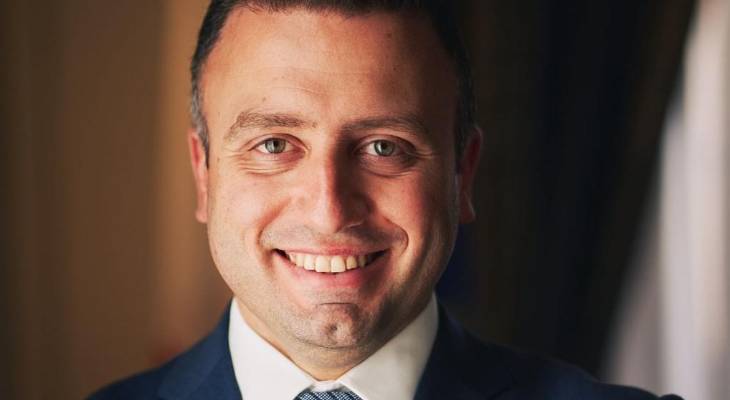This article was penned by Carm Cachia, the Chief Administrator at the eSkills Malta Foundation
The skilling, upskilling and reskilling of various factions in the digital economy have been a major challenge. During these years, the information technology scenario has changed.
Although we have known technology to change its pace over time, over the last six years, the future has become clearer, and the potential for technology to disrupt society, commerce, and education has become evident.
The advancement of technologies such as Artificial Intelligence, Distributed Ledger Technologies, the Internet of Things, data management and its visualisation, together with quantum computing, and high-performance computing, to mention just a few, has given us the understanding that many opportunities and benefits can become a reality – and very soon.
Technological advancement has created a ripple effect on all sectors, including commerce, health, government, manufacturing, finance, marketing, banking, energy, agriculture, entertainment, among others. There is hardly a sector which technology will not disrupt.
This wave of change has been long coming, and the European Commission has urged EU member states that, should they want to remain competitive on the global market, they must prepare for this digital disruption. Countries need to prepare society for the implications and to encourage a digital transformation in their businesses and government.
The other continents have been doing the same. Although these compete with each other, in effect all continents have realised that this is one world and cooperation is key for the success and failure of this technology.
But industrial competition will always be there, and the European Commission successfully implemented the single market economy, treating the EU as one territory without any internal borders or other regulatory obstacles to the free movement of goods and services.

The digital single market, a part of this strategy, aims to open up digital opportunities for people and business and, therefore, improve Europe’s position as a world leaderin the digital sector. With the digital single market, problems in one country are likely to be seen as problems in the other member states.
Then, through the European Commission, member states collectively seek common solutions. Technological disruption has augmented the issues in the digital skills gap in society, SMEs and the digital sector. The collective efforts between member states are the best approach to tackle this. This disruption also has a profound effect on the skills and competences required by all the stakeholders and actors.
Organisations like the eSkills Malta Foundation has been in the thick of things to reduce the sudden impact of the digital skills gap. However, COVID-19 has somewhat complicated the implementation of solutions to tackle these persisting issues.
Many organisations have had to adapt to the situation, and the Foundation has turned this to its advantage by focusing further in skilling, upskilling and reskilling using the online virtual environment. Career guidance training has already started to be catered for in this way, as have summer bootcamps and other events.
Additional to the various online courses already promoted on the Foundation’s website, the eSkills Malta Foundation is currently working with technology and education partners to help in achieving its aims. These leaders in the field have realised the profound effect the Foundation has and can have on inskilling and upskilling. In this article, we have chosen to mention two such initiatives that we will be introducing in the last quarter of 2020.
Elements of AI
Artificial Intelligence (AI) is like electricity. It will affect our lives in many ways; we are just now imagining what the future could hold in this regard.
What’s certain is that it should not be left in the hands of a few elite coders.In spring 2018, technology company Reaktor and the University of Helsinki came together to democratise AI.
This is an example of best-practice where industry and education collaborate for the benefit of society. Together, these two organisations built a free online course available to anyone, anywhere, at any time, to teach the basics of AI to people from a wide range of backgrounds.
The course is dubbed Elements of AI. As a gift marking the end of Finland’s Presidency of the Council of the European Union, Finland will extend free access to the Elements of AI course in all EU languages in 2020 and 2021.

Their ambitious goal is to educate 1 per cent of European citizens by 2021. The course explains the implications of AI in everyday situations with interactive exercises so that students can make informed decisions as workers, voters, media and product consumers.
The Elements of AI course has been prominently featured in over 500 global media outlets, won multiple international awards, and global acclaim.
Now, with over 400,000 students and best user ratings around the world, Elements is a benchmark for making complex issues easily understandable and fun to learn. This course is an introduction to AI with no complicated math or programming required.
Age, profession or country make no difference in this course. The six chapters of the course are estimated to take 25 hours for those interested.
After following the course, individuals can understand some of the major implications of AI, think critically about AI news and claims, define and discuss what AI is, and explain the methods that make AI possible.
Reaktor and Helsinki University have realised the importance of the eSkills Malta Foundation and the University of Malta, and has reached an agreement to actively introduce this in Malta. The University of Malta will manage the implementation of this course in the academic community in all disciplines. Non-AI literate academics coming from whatever field now have the opportunity to learn more about ArtificialIntelligence.
The eSkills Malta Foundation, possessing government and private sector connections, as well asmarketing know-how, will handle the rest. In other words, we plan to have a wide outreach in society, education, and to SMEs.

Parliamentary Secretary for Financial Services and Digital Economy Clayton Bartolo
In collaboration with the Ministry for Financial Services and Digital Economy, this important course will be launched officially by the Parliamentary Secretary Hon. Clayton Bartolo, through a short online event on 8th October. We hope to attract individuals coming from all walks of life.
AMAZON Web Services (AWS)
We cannot say that cloud computing is something new.
However, its presence has been in the mainstream and many organisations have put their trust in leading cloud services providers to manage their data and information on the cloud.
AWS is the leader in the world on Infrastructure as a Service (IaaS) and is one of the most comprehensive cloud platforms.
Since its inception, the eSkills Malta Foundation has been at the core in the contribution towards the increase of digital skills and the development of the ICT profession in Malta. Individuals looking for job opportunities, in particular school leavers, must have the relevant in-demand industry skills to compete in the marketplace.
Following consultation between AWS and the eSkills Malta Foundation, several study programmes were selected to be provided in Malta using ICE Malta as their preferred training provider. These include AWS Cloud Practitioner Essentials, Architecting on AWS and AWS Business Essentials.
The first two courses are designed for youth, whether prospective students, employees or the unemployed. Both of these courses come with the opportunity to sit for an official exam to get a widely-recognised industry certification at the end of the classes.
The first course, AWS Cloud Practitioner Essentials, is an entry-level programme leading participants to become cloud professionals.
The idea is to recruit, train and certify 50 people, to raise their employability level and digital skills, and also to start creating a critical mass of cloud professionals. The second course, Architecting on AWS, an associate level programme gives participants highly sought-after skills and competencies about cloud technology.
The idea here is to (a) either funnel and allow only the 15 best participants of the entry-level course to continue to this advanced level or (b) engage young IT professionals to acquire this certification, allowing them to look for quality jobs after obtaining the certification.
It also aims to certify participants with previous experience on the subject. The third course, AWS Business Essentials, is designed to help business leaders, executives, and non-technical staff, understand the advantages of cloud computing and build a cloud strategy to meet business goals.
The course will review the business and financial benefits of cloud computing and the fundamentals of AWS.
In this course, participants will also learn about the cloud adoption framework to help design a strategy to deploy a cloud platform within their business successfully.
All these courses have been made possible through funding by the Melita Foundation. The Melita Foundation was launched as a charitable foundation with initial funding of €500,000, to be used to finance a range of projects focused primarily on the development of digital skills and creativity among young people in Malta, as well as the conservation of Malta’s heritage and environment. Melita Foundation recognised the important role that the eSkills Malta Foundation plays in Malta, and both foundations are working together.
These are just a few of the initiatives that the eSkills Malta Foundation have been working on. The Foundation believes that industry certifications are a mark of quality and are of specific importance to the industry sector. Other agreements with technology leaders are expected in the near future.
This will provide further development for existing ICT professionals and allow new practitioners to be fostered.
This article was first carried in the September issue of The Malta Business Observer
Main Image:
